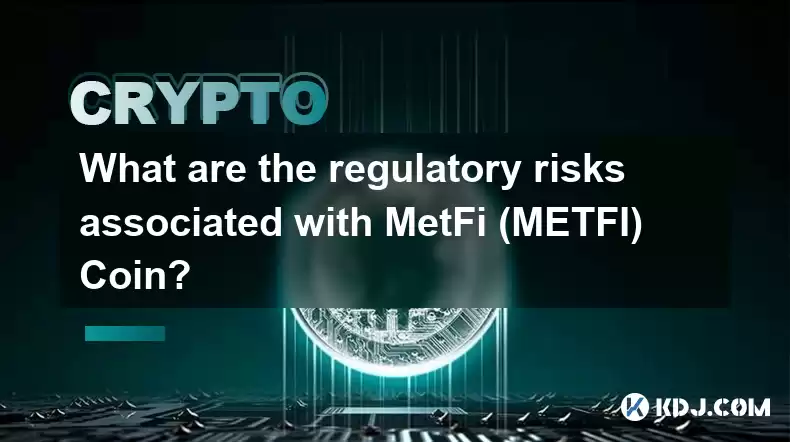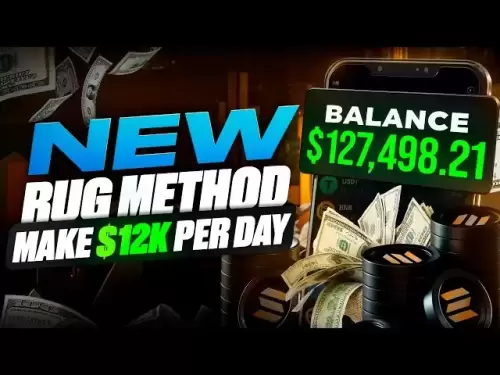-
 Bitcoin
Bitcoin $114000
0.14% -
 Ethereum
Ethereum $3493
-0.55% -
 XRP
XRP $2.877
-2.40% -
 Tether USDt
Tether USDt $1.000
0.04% -
 BNB
BNB $749.6
-1.00% -
 Solana
Solana $161.8
-1.73% -
 USDC
USDC $0.0000
0.01% -
 TRON
TRON $0.3261
-0.10% -
 Dogecoin
Dogecoin $0.1978
-1.14% -
 Cardano
Cardano $0.7237
1.01% -
 Hyperliquid
Hyperliquid $38.91
1.50% -
 Sui
Sui $3.466
1.01% -
 Stellar
Stellar $0.3856
0.86% -
 Chainlink
Chainlink $16.15
0.62% -
 Bitcoin Cash
Bitcoin Cash $538.9
0.49% -
 Hedera
Hedera $0.2436
2.25% -
 Ethena USDe
Ethena USDe $1.001
0.05% -
 Avalanche
Avalanche $21.36
-0.86% -
 Toncoin
Toncoin $3.661
2.11% -
 Litecoin
Litecoin $109.1
1.99% -
 UNUS SED LEO
UNUS SED LEO $8.964
0.01% -
 Shiba Inu
Shiba Inu $0.00001220
0.67% -
 Polkadot
Polkadot $3.604
1.10% -
 Uniswap
Uniswap $9.124
0.97% -
 Monero
Monero $297.4
1.31% -
 Dai
Dai $1.000
0.02% -
 Bitget Token
Bitget Token $4.311
0.35% -
 Pepe
Pepe $0.00001048
0.49% -
 Cronos
Cronos $0.1319
-0.50% -
 Aave
Aave $257.9
1.11%
What are the regulatory risks associated with MetFi (METFI) Coin?
MetFi's regulatory challenges stem from the decentralized nature of METFI Coin, the evolving regulatory landscape, and the need to address concerns such as money laundering and market manipulation.
Jan 05, 2025 at 01:39 am

Key Points:
- MetFi (METFI) Coin operates within the decentralized finance (DeFi) space, presenting unique regulatory challenges.
- Regulatory frameworks for DeFi and cryptocurrencies vary significantly across jurisdictions, creating uncertainty for investors and businesses.
- MetFi's regulatory compliance strategy and risk management practices are crucial for its success and longevity.
Regulatory Risks Associated with MetFi (METFI) Coin:
1. Applicability of Securities Laws:
- The decentralized nature of MetFi raises questions about its classification under securities laws.
- Regulators may consider METFI Coin a security if it offers investment contracts or if it provides holders with rights to dividends or profits.
- If classified as a security, MetFi would be subject to stringent registration and disclosure requirements.
2. Anti-Money Laundering (AML) and Know Your Customer (KYC) Regulations:
- DeFi platforms are susceptible to money laundering and terrorist financing due to their anonymity and lack of centralized control.
- Regulators are imposing KYC and AML regulations on DeFi platforms to prevent illicit activities.
- MetFi must implement robust KYC and AML measures to ensure compliance and avoid legal penalties.
3. Market Manipulation and Insider Trading:
- Decentralized exchanges (DEXes) where MetFi is traded are vulnerable to market manipulation and insider trading.
- Regulators are exploring measures to prevent these activities, such as surveillance and whistleblower programs.
- MetFi must establish clear guidelines and policies to address market manipulation concerns.
4. Taxation Considerations:
- Cryptocurrencies, including METFI Coin, are subject to taxation in many jurisdictions.
- The tax treatment of MetFi depends on its classification and the specific tax laws in each jurisdiction.
- Compliance with tax regulations is essential for MetFi and its users to avoid penalties.
5. Regulatory Uncertainty and Evolution:
- The regulatory landscape for DeFi and cryptocurrencies is constantly evolving.
- New regulations can impact MetFi's operations and expose it to additional risks.
- MetFi must monitor regulatory developments and adapt its business strategy accordingly.
FAQs:
Q: Is MetFi (METFI) Coin a security?
A: The classification of METFI Coin under securities laws depends on its specific characteristics and the regulatory frameworks in each jurisdiction.
Q: What are MetFi's KYC and AML measures?
A: MetFi is expected to implement robust KYC and AML measures to prevent money laundering and terrorist financing.
Q: How does MetFi address market manipulation concerns?
A: MetFi should establish clear guidelines and policies to prevent market manipulation and insider trading on DEXes.
Q: Is METFI Coin subject to taxation?
A: Yes, METFI Coin is likely subject to taxation depending on its classification and the tax laws in each jurisdiction.
Q: How does MetFi mitigate regulatory risks associated with the evolving regulatory landscape?
A: MetFi must monitor regulatory developments and adapt its business strategy to comply with new regulations.
Disclaimer:info@kdj.com
The information provided is not trading advice. kdj.com does not assume any responsibility for any investments made based on the information provided in this article. Cryptocurrencies are highly volatile and it is highly recommended that you invest with caution after thorough research!
If you believe that the content used on this website infringes your copyright, please contact us immediately (info@kdj.com) and we will delete it promptly.
- Solana's Next Chapter: SOL Prediction and the SOLF Token Buzz
- 2025-08-03 18:30:16
- Token Chart Buzz: Analysts Eye Potential Price Increase with Mutuum Finance (MUTM)
- 2025-08-03 18:30:16
- Dogecoin, Utility Tokens, and Whales: A New Era for Crypto?
- 2025-08-03 19:10:16
- Small Cap Crypto Gem Alert: Ruvi AI's 100x Potential Shakes Up Solana, Ethereum, and XRP
- 2025-08-03 19:10:16
- SOLF Token vs. BONK: Predicting a $300 Solana in 2025?
- 2025-08-03 16:30:16
- Sei, Injective, and Bitcoin Dominance: Navigating the Crypto Landscape
- 2025-08-03 16:50:15
Related knowledge

What is Chainlink (LINK)?
Jul 22,2025 at 02:14am
Understanding Chainlink (LINK): The Decentralized Oracle NetworkChainlink is a decentralized oracle network designed to bridge the gap between blockch...

What is Avalanche (AVAX)?
Jul 22,2025 at 08:35am
What is Avalanche (AVAX)?Avalanche (AVAX) is a decentralized, open-source blockchain platform designed to support high-performance decentralized appli...

What is Polkadot (DOT)?
Jul 19,2025 at 06:35pm
Understanding the Basics of Polkadot (DOT)Polkadot (DOT) is a multi-chain network protocol designed to enable different blockchains to transfer messag...

What is Litecoin (LTC)?
Jul 23,2025 at 11:35am
Overview of Litecoin (LTC)Litecoin (LTC) is a peer-to-peer cryptocurrency that was created in 2011 by Charlie Lee, a former Google engineer. It is oft...

What is Monero (XMR)?
Jul 21,2025 at 10:07am
What is Monero (XMR)?Monero (XMR) is a decentralized cryptocurrency designed to provide enhanced privacy and anonymity for its users. Unlike Bitcoin a...

How to add indicators to Ethereum chart on TradingView?
Jul 19,2025 at 07:15am
What Is an Ethereum Chart on TradingView?The Ethereum chart on TradingView is a visual representation of the price movement of Ethereum (ETH) over a s...

What is Chainlink (LINK)?
Jul 22,2025 at 02:14am
Understanding Chainlink (LINK): The Decentralized Oracle NetworkChainlink is a decentralized oracle network designed to bridge the gap between blockch...

What is Avalanche (AVAX)?
Jul 22,2025 at 08:35am
What is Avalanche (AVAX)?Avalanche (AVAX) is a decentralized, open-source blockchain platform designed to support high-performance decentralized appli...

What is Polkadot (DOT)?
Jul 19,2025 at 06:35pm
Understanding the Basics of Polkadot (DOT)Polkadot (DOT) is a multi-chain network protocol designed to enable different blockchains to transfer messag...

What is Litecoin (LTC)?
Jul 23,2025 at 11:35am
Overview of Litecoin (LTC)Litecoin (LTC) is a peer-to-peer cryptocurrency that was created in 2011 by Charlie Lee, a former Google engineer. It is oft...

What is Monero (XMR)?
Jul 21,2025 at 10:07am
What is Monero (XMR)?Monero (XMR) is a decentralized cryptocurrency designed to provide enhanced privacy and anonymity for its users. Unlike Bitcoin a...

How to add indicators to Ethereum chart on TradingView?
Jul 19,2025 at 07:15am
What Is an Ethereum Chart on TradingView?The Ethereum chart on TradingView is a visual representation of the price movement of Ethereum (ETH) over a s...
See all articles

























































































